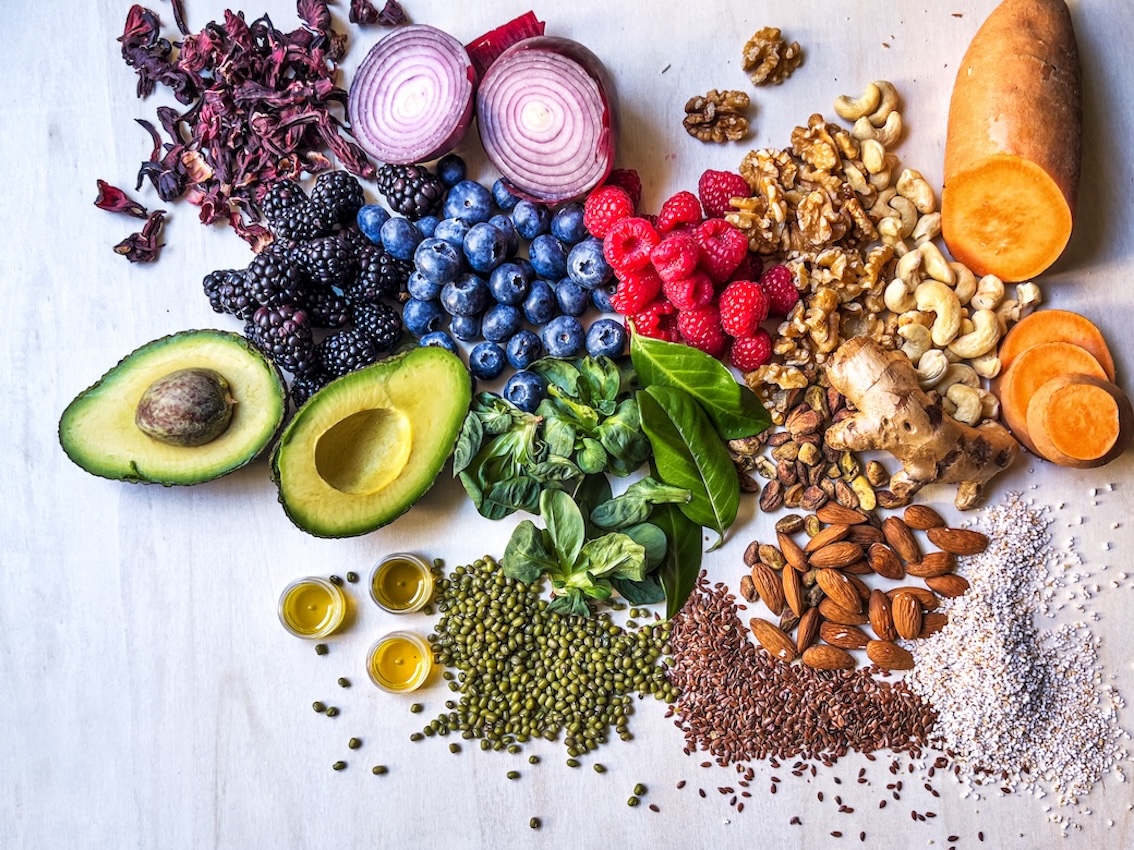Your pelvic floor muscles support your bladder, bowels and reproductive organs and are essential to core stability, posture and sexual function. Like any other muscle group, your pelvic floor benefits from regular exercise, good hydration and proper nutrition.
A balanced diet can help keep your pelvic floor muscles strong and resilient. Here’s what to include in your diet to give your pelvic floor a boost:
1. Protein: Build and repair muscle
“Protein provides the essential building blocks your muscles need to grow, repair and maintain strength, and that includes your pelvic floor,” said Adam Holzberg, D.O., a urogynecologist with Inspira Medical Group. Including protein-rich foods throughout the day supports consistent muscle health and recovery. Lean meats, fish, eggs, Greek yogurt and plant-based options like beans, lentils, tofu and quinoa are all excellent choices. Aim to include at least one protein source with every meal.
2. Magnesium: Relax and recover
“Magnesium helps your muscles contract and relax properly, which can help prevent pelvic floor tightness or cramping,” said Dr. Holzberg. “Without enough magnesium, you might notice symptoms like muscle spasms or weakness.” Magnesium-rich foods include avocados, leafy greens like spinach and Swiss chard, nuts and seeds and whole grains like brown rice and oats.
3. Vitamin D: Strengthen your support system
Vitamin D helps you absorb calcium, which your muscles need to function effectively. Research suggests that vitamin D may be directly linked to muscle strength, including the pelvic floor. Fatty fish like salmon and mackerel, fortified foods and egg yolks are all good sources of vitamin D.
Spending time outdoors also helps your body naturally produce this important vitamin. Many people are low in vitamin D without realizing it, so if you’re concerned, talk to your doctor about whether a supplement might help.
4. Calcium: Boost muscle contraction
When you think of calcium, you probably think about bone health, but calcium is just as essential to muscle function. Calcium helps your muscles contract properly, including pelvic floor muscles. Dairy products like milk, yogurt and cheese are excellent calcium sources, along with leafy greens such as kale and bok choy and fortified plant milks like almond or soy milk. Pairing calcium-rich foods with vitamin D can enhance absorption and maximize muscle health benefits.
5. Fiber: Support bowel and pelvic floor health
“Fiber is essential for healthy digestion and regular bowel movements, both of which are important for your pelvic floor health,” said Dr. Holzberg. “Straining during bowel movements, which often happens because of constipation, can weaken the pelvic floor muscles over time.”
To support smooth digestion and take pressure off your pelvic muscles, include fiber-rich foods like fruits, vegetables, whole grains and legumes. If you're just starting to add more fiber to your diet, increase your intake gradually and drink plenty of water to keep digestion moving comfortably.
6. Healthy fats: Reduce inflammation
Chronic inflammation can interfere with muscle recovery and overall pelvic health. Including healthy fats in your diet provides anti-inflammatory benefits that can support your muscles and whole body. Focus on sources like olive oil, avocados, nuts and seeds and fatty fish like salmon and sardines. Swapping out processed oils and fried foods for more nutritious options can help reduce inflammation and keep your muscles healthy and strong.
“Strengthening your pelvic floor isn’t just about exercises; what you put on your plate matters, too,” said Dr. Holzberg. A balanced, nutrient-rich diet can improve muscle health, prevent common pelvic floor problems and enhance your overall quality of life.
Schedule a urogynecology and pelvic medicine appointment at Inspira.
